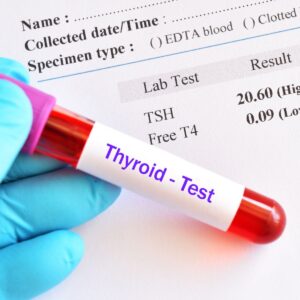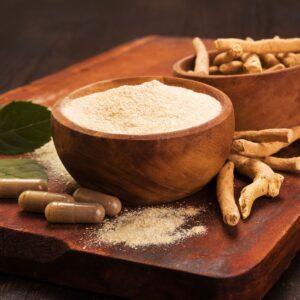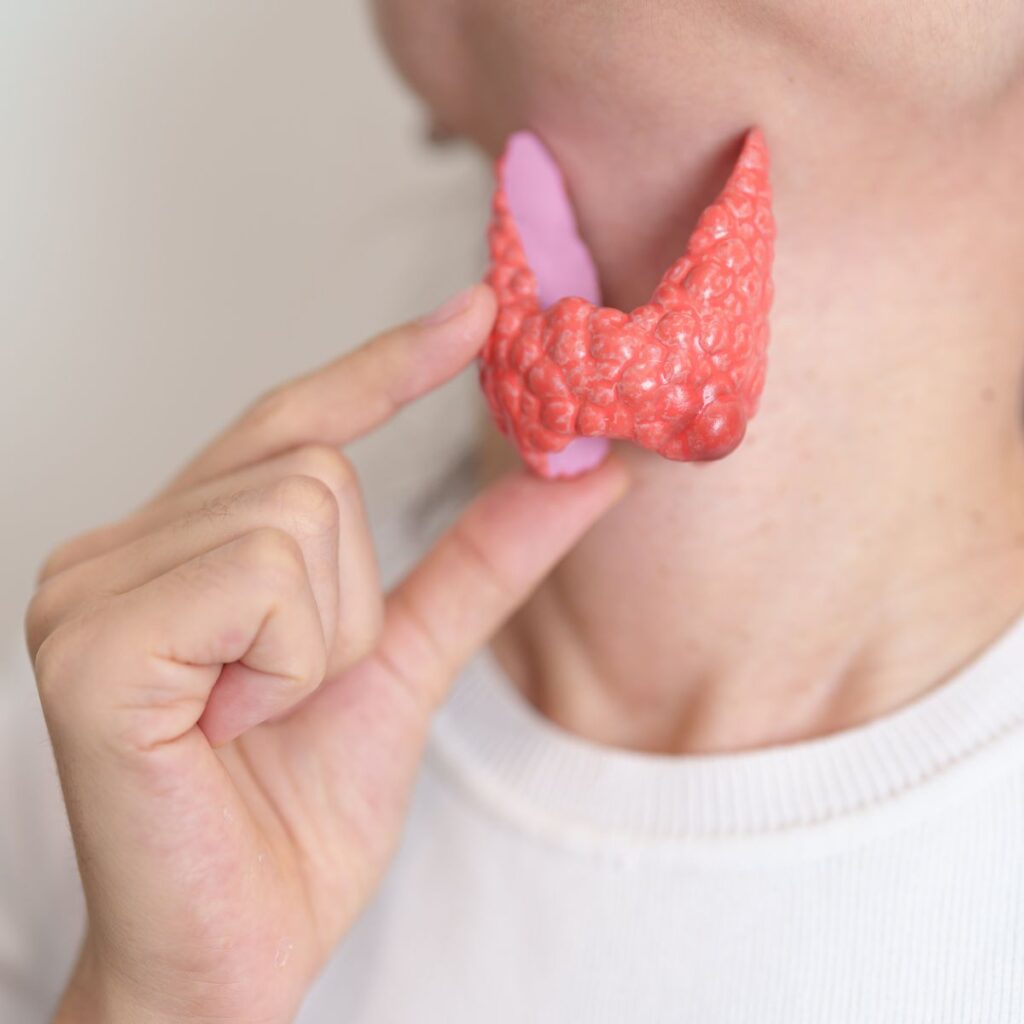Blog
Remedies to Reset Your Thyroid Naturally: Best Healing Foods and Herbs
What is hypothyroidism?
Hypothyroidism, also known as an underactive thyroid, is a condition where the thyroid gland produces insufficient amounts of thyroid hormones. The thyroid is a butterfly-shaped endocrine gland located in the neck. It secretes two primary hormones, thyroxine (T4) and triiodothyronine (T3), which influence metabolism, growth, and essential bodily functions, including bone health, digestive and nervous system functions, and reproductive health.
Symptoms of Hypothyroidism
The thyroid gland serves as the body’s primary engine. Insufficient thyroid hormone levels can lead to a variety of symptoms, including:

- Chronic fatigue and lethargy.
- Brain fog and difficulty concentrating.
- Depression.
- Hair loss.
- Irregular and heavier menstrual cycles.
- Persistent constipation.
- Difficulty losing weight despite dieting and exercising.
Types of Hypothyroidism
- Primary Hypothyroidism: Caused by direct issues with the thyroid gland, such as Hashimoto’s thyroiditis.
- Secondary Hypothyroidism: Results from dysfunction of the pituitary gland (hypothalamus).
- Subclinical hypothyroidism: marked by elevated TSH levels with normal T4 levels.
Root Causes of Hypothyroidism
- Deficiency in Minerals and Vitamins:
- Lacking iodine, selenium, zinc, magnesium, iron, and essential vitamins like D and B complex can impair thyroid function.
- Poor soil quality contributes to reduced nutrient content in food.
- Dietary Toxins:

-
- Gluten found in wheat and its derivatives can cause leaky gut, leading to thyroid inflammation.
- Environmental Toxins:
- Heavy metals like lead and mercury (found in dental fillings), nitrates in processed meats (e.g., sausages, hot dogs), and PFOA (used in unsafe nonstick cookware like Teflon).
- Aluminum-based products, such as certain deodorants.
- Liver Issues:
- The liver is a critical site for converting inactive T4 into active T3 hormones.
- Physical and emotional stress:
- Increased cortisol production due to stress can negatively affect thyroid function.
Tests Needed for Diagnosing Hypothyroidism
Even if symptoms persist, thyroid function tests may appear normal. Comprehensive testing is essential, including:
- TSH
- T3 and T4

- Antibody Tests:
- Anti-Thyroid Peroxidase Antibody (Anti-TPO)
- Anti-Thyroglobulin Antibody
- Analysis of essential vitamins and minerals like iron, vitamin D, zinc, and magnesium.
Note: If you are taking biotin supplements, it’s crucial to inform your healthcare provider, as biotin can interfere with thyroid function test results, potentially showing false hypothyroidism.
Natural Protocol for Treating Hypothyroidism
- Eliminate Gluten:
- Avoid wheat and its derivatives for 3-4 months.
- Replace with high-fiber foods like brown rice and quinoa.
- Avoid dairy and sugar:
- Use plant-based milk alternatives and natural sweeteners such as honey or stevia.
- Enhance Nutrition:
- Incorporate iron-rich foods (e.g., liver, lentils), zinc (pumpkin seeds, oats), iodine (seaweed), and selenium (2 Brazil nuts daily).
- Consume healthy fats like coconut oil and ghee.
- Support Gut Health:
- Use probiotics to promote beneficial gut bacteria and address leaky gut issues.
- Improve Liver Health:
- Eat green leafy vegetables, beets, and consider supplements like milk thistle.
- Reduce Exposure to Environmental Toxins
- Choose fluoride- and aluminum-free personal care products (e.g., deodorants and toothpaste).

- Manage Stress:
- Practice yoga, Pilates, or breathing exercises.
- Engage in spiritual practices, gratitude journaling, and mindfulness.
- Use adaptogens like ashwagandha to lower cortisol levels.
- Spend time with friends and indulge in hobbies you enjoy.
Recommended Supplements
- Probiotics (50 billion CFU).
- Omega-3 fatty acids.
- Vitamin D3 (10,000 IU daily).
- Multivitamins that contain essential vitamins and minerals.
Conclusion
Hypothyroidism can significantly impact your quality of life, but treatment isn’t limited to hormonal medications. By improving your diet, reducing exposure to toxins, and managing stress, you can alleviate symptoms and support natural recovery. If you are experiencing symptoms, consult your doctor and undergo the necessary tests.
If you want a full, comprehensive, and complete protocol for hypothyroidism and Hashimoto’s, offering everything you need from effective treatment steps to scientific tips for improving your health and regaining your energy, follow the link below. Others have already started their journey to recovery with this protocol—now it’s your turn! Click the link below to subscribe and start your transformation:
Hashimoto/hypothyroidism healing protocol subscription link
For more detailed information about thyroid health and natural remedies for hypithyroidism and hashimoto, follow this link and watch the full episode on the Dr. Fajer AlJumairi YouTube channel:

